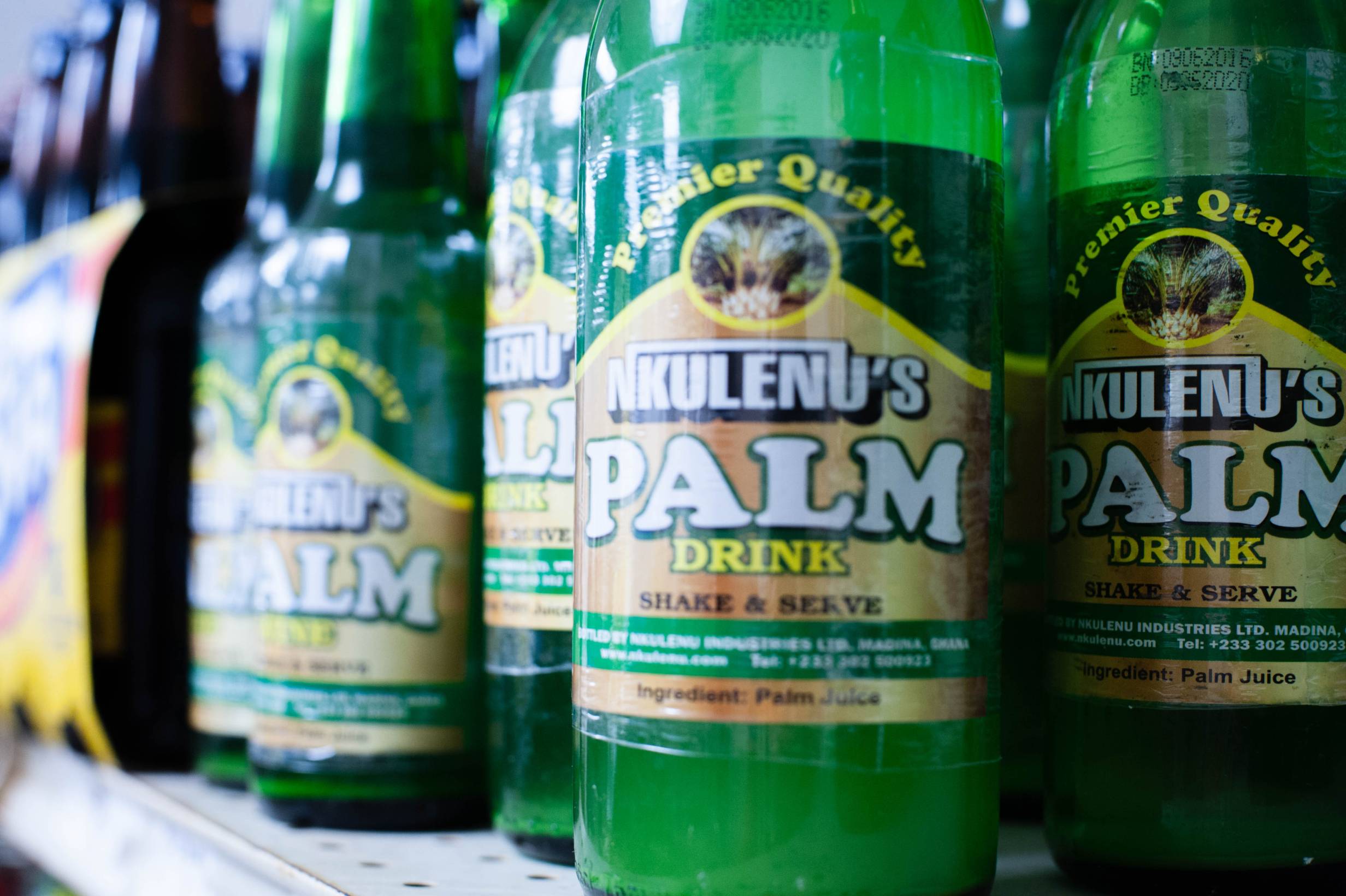On an unseasonably warm Saturday in February, Lisette Mbaki and her husband Memoire Budimbu Mabiza restock recently arrived packages of mackerel and perch in the case freezers lined along the back wall of their grocery store. Mbaki, who owns Best of Africa Food Store with her husband, walks up to the checkout to ring up purchases for a regular, who is putting their baby in their carrier on the counter. Mbaki and her dear patron, who had also immigrated from the Democratic Republic of Congo, ask about each other’s families and review new hair products that Mbaki had recently ordered to sell at the store.
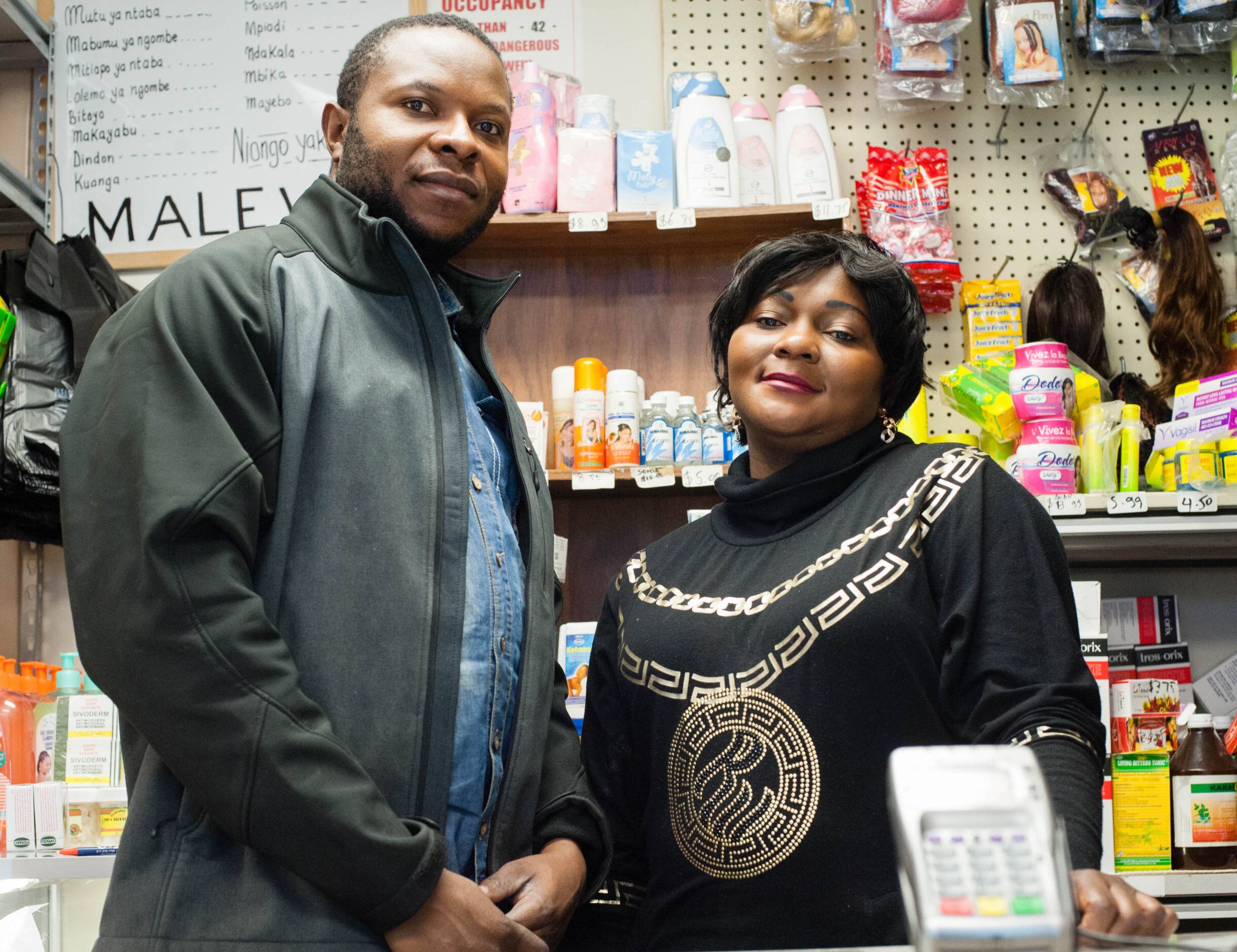
Nearly four years ago, Mbaki and Mabiza had opened the Urbana-based grocery store out of the ambition and ardor to open the first African grocery store in Champaign County. With a growing group of Congolese and other African expats in the area, they had long talked about the difficulty in finding food and beauty products that are nearly ubiquitous in many African homes. They decided that this was the time to turn those long talks into plans after reading in the paper that Lee’s Oriental Food in Champaign was going out of business. After a long pause, Mbaki recalls asking Mabiza at the kitchen table why they couldn’t start a grocery store here. It was a rhetorical question, she added smiling.
Lee’s Oriental Food had been the grocery store stop for Mbaki and Mabiza and for many of their friends and family members who had immigrated to Champaign-Urbana. It was where you could find African products, albeit with a limited variety and supply. Recognizing this gap, she immediately started selling food to her friends from house-to-house and often during lunch break at factory where she had previously worked. When Lee’s closed she thought that this time was the perfect opportunity for her to expand her friend-to-friend business set-up to a brick-and-mortar grocery store venture.
“I decided to call the store Best of Africa because I wanted to keep ‘Africa’ in the name,” said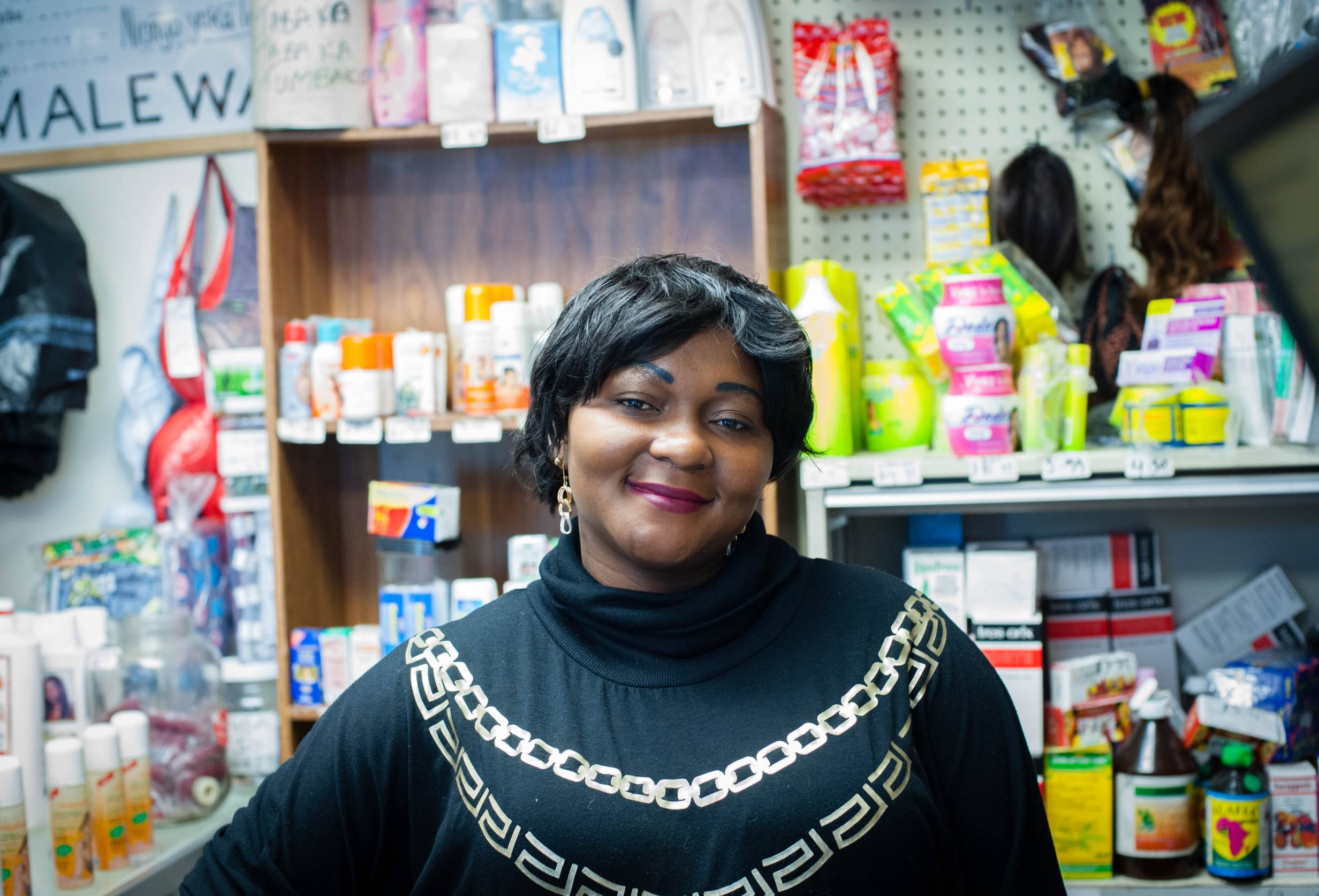 Mbaki. “When some people think of Africa, they think of a land of monkeys, giraffes, jungle, and sahara. We are much more than that. Africans bring a lot of great skills and culture to this area. Africans are business owners like me.”
Mbaki. “When some people think of Africa, they think of a land of monkeys, giraffes, jungle, and sahara. We are much more than that. Africans bring a lot of great skills and culture to this area. Africans are business owners like me.”
Mbaki had come from a business-oriented family, having graduated with a degree in financial affairs as some of her siblings had done at the flagship university in Kinshasa, the capital of the Democratic Republic of Congo (DRC). Her husband had also received a business administration degree before immigrating to the United States on a diversity visa card with Mbaki. As Mbaki begins to talk about the history of her family, Mabiza takes a break from stocking the case freezers with fish to politely interject Mbaki’s storytelling, adding how in influential Mbaki’s mom was as a businesswoman, not only to her daughter, but to her home country.
Mabiza recounts how Madeleine Ntumba, Mbaki’s mom, was well known for having created a commercial center where a military base was located near the border of Angola and the DRC. The base is where Ntumba met Mbaki’s father who was actively serving at the time. Often having to travel far to find home goods and certain foods, she quickly saw the need and potential of a commercial center on the base. Immediately, she started selling the fast food she used to make at the markets back home; and Mabiza adds how quickly her efforts grew and facilitated more trade between Angola and the DRC.
“Lisette’s mom was an amazing person and great businesswoman,” said Mabiza. “There should be a statue in the Democratic Republic of Congo to commemorate her mother’s breakthrough achievement.”
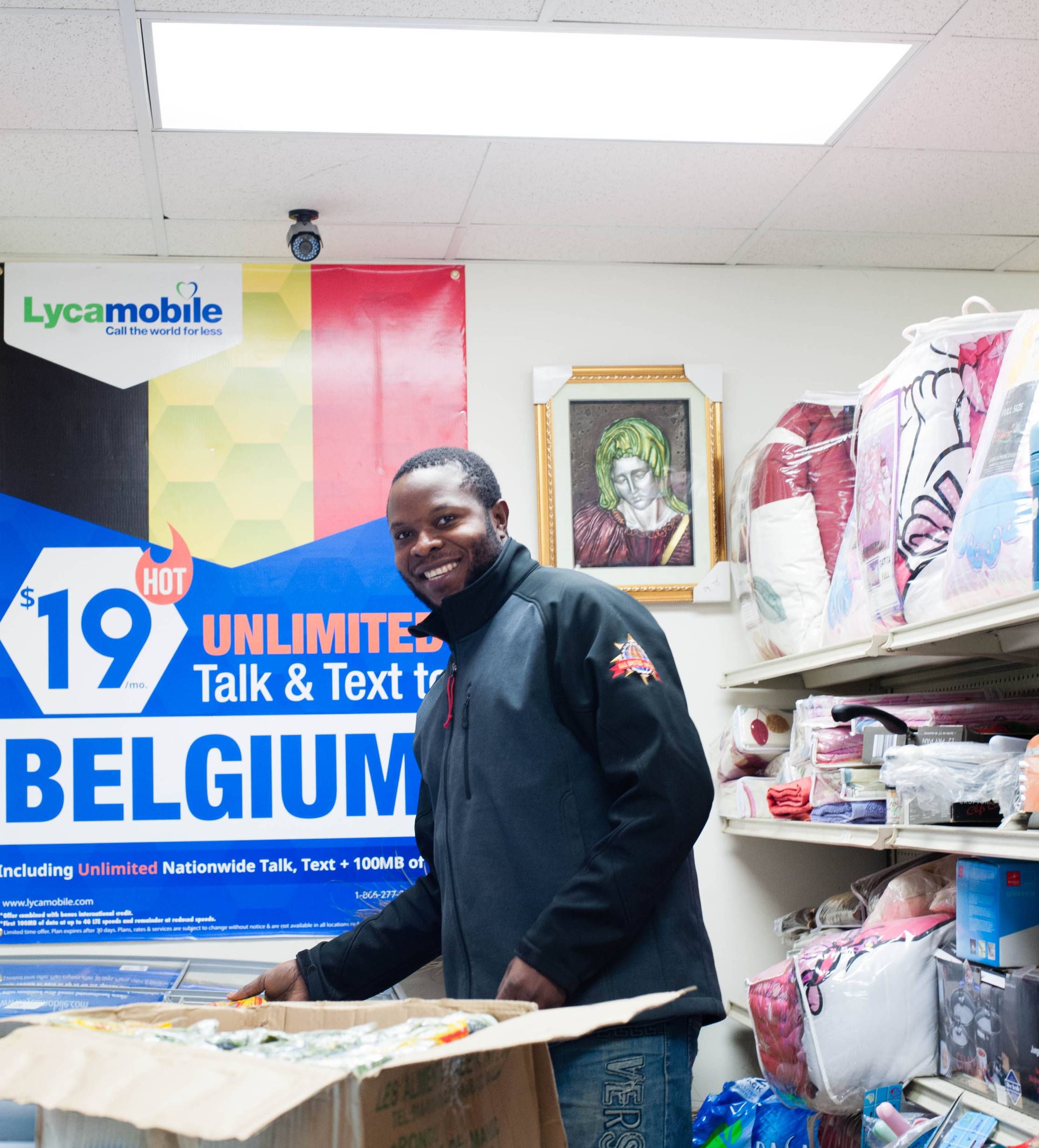 Mbaki was proud to share that the legacy of her mom’s entrepreneurship and added that it was her mom’s career that inspired her to get her degree and eventually the open the business she had been dreaming about in Urbana.
Mbaki was proud to share that the legacy of her mom’s entrepreneurship and added that it was her mom’s career that inspired her to get her degree and eventually the open the business she had been dreaming about in Urbana.
Even before she decided to make the move to open a business, Mbaki had her eye on the nicely textured, terracotta building tucked behind the Urbana Adult Education Center. That space was often on her mind, Mbaki said, as she would drop her sister off at Urbana Adult Education Center several times a week and would pass by the space on her way back home. Mbaki thought the shop location was well located as it was close to the Urbana Adult Education Center, where many adult immigrants go to learn English, and also near several factories where immigrant residents in Urbana walk to work everyday.
Mabiza and Mbaki pinpoint the inauguration of setting their business plans into motion when they attended a business seminar hosted by a leader in the Congolese community. It was at that seminar where they both met up with Susan Ogwal, a PhD student in the College of Education at the University of Illinois. Mabiza, who knows of Ogwal’s work as a researcher of African immigration and education, approached her after the seminar and asked for her help in getting Best of Africa established.
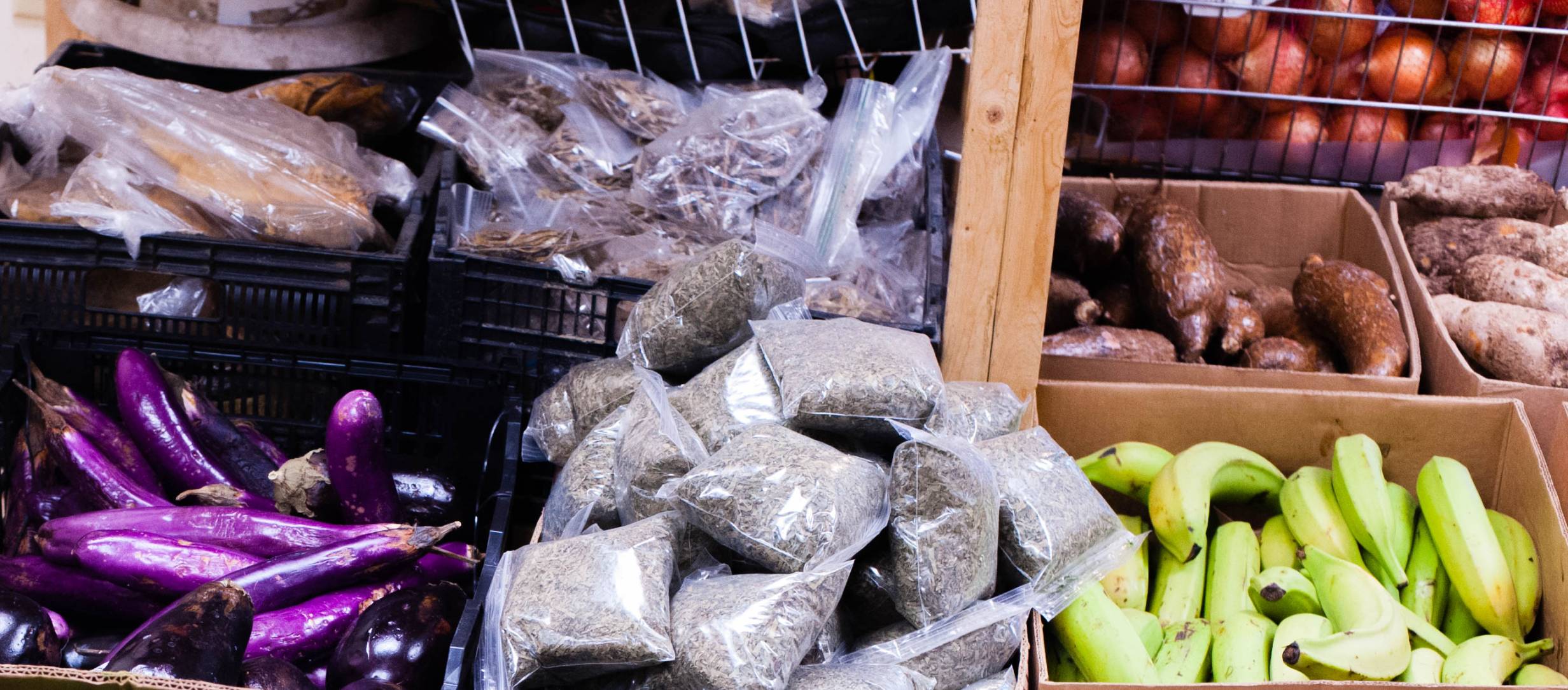
“We were so thankful for Susan Ogwal, who helped us figure out how to get a loan, what documents were needed, and the kinds of information and regulations that we were not familiar with being new to the United States,” said Mbaki. “We were not connected to any formal information or groups, and we don’t think we would have been able to become so successfully established without the help and guidance of community members like Susan.”
Mbaki and Mabiza started meeting regularly with Ogwal in study rooms at Urbana Free Library on how to go about getting more information to get approved for a loan and the purchasing of the space. Ogwal also helped them gather research and statistics on African immigration in the area and in the state to help them make a case for opening up the first African grocery store in the area.
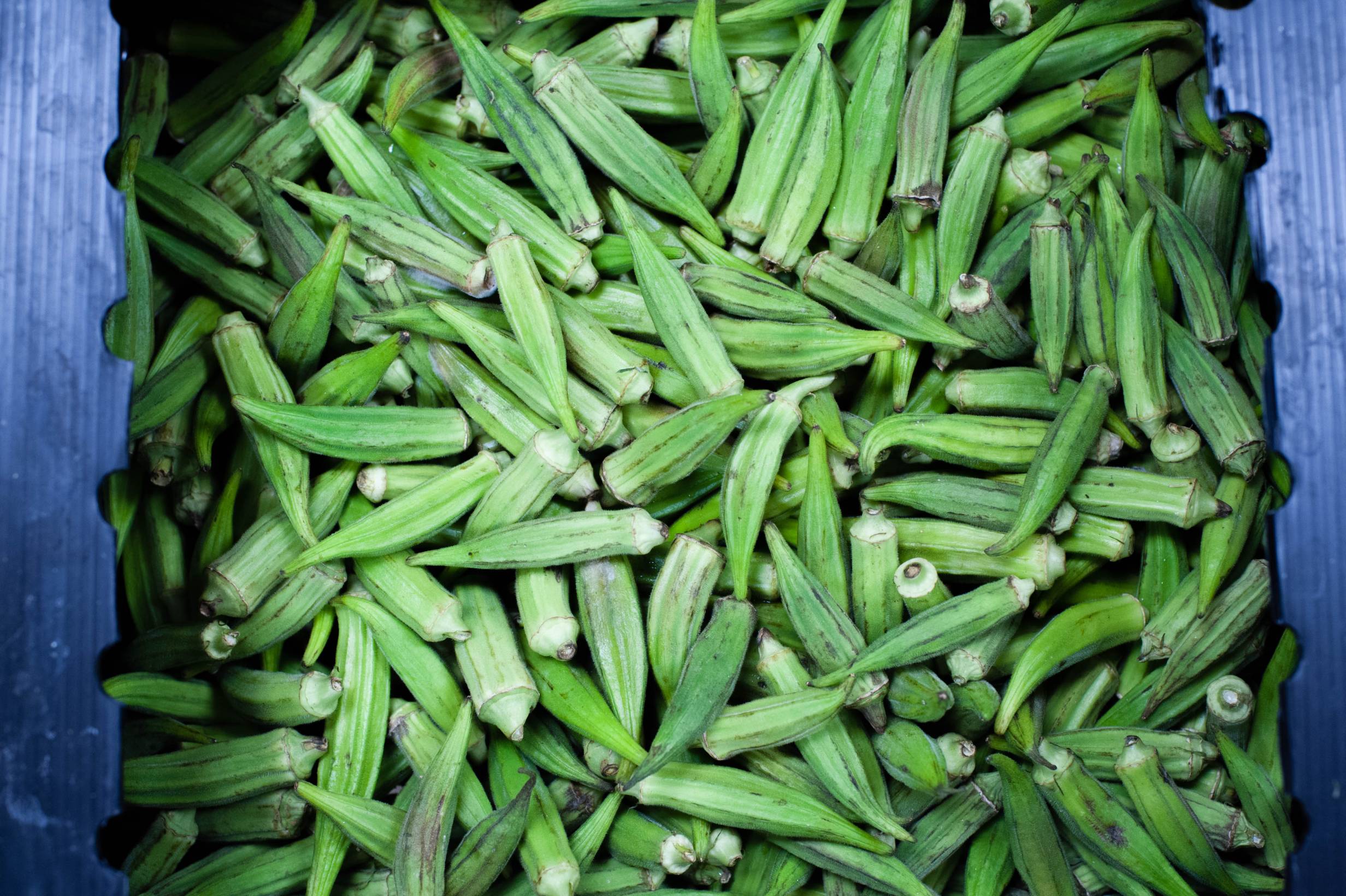
“Central Illinois is a growing area for immigrants, especially for the African population,” said Susan Ogwal. “With the use of research, I helped Lisette and Memoire illustrate that the opening of their store would help meet a need that no other currently established stores could do.”
At about the same time that Ogwal was helping Mbaki and Mabiza, she began identifying and interviewing immigrant-owned businesses in Urbana as part of an Urban Planning course with Professor Stacy Harwood at the University of Illinois. While students were identifying and interviewing many immigrant owned businesses at the time of the research in 2015, there was only one African immigrant-owned business called Sister Sister African Hair Braiding, which has been established in C-U since 2005.
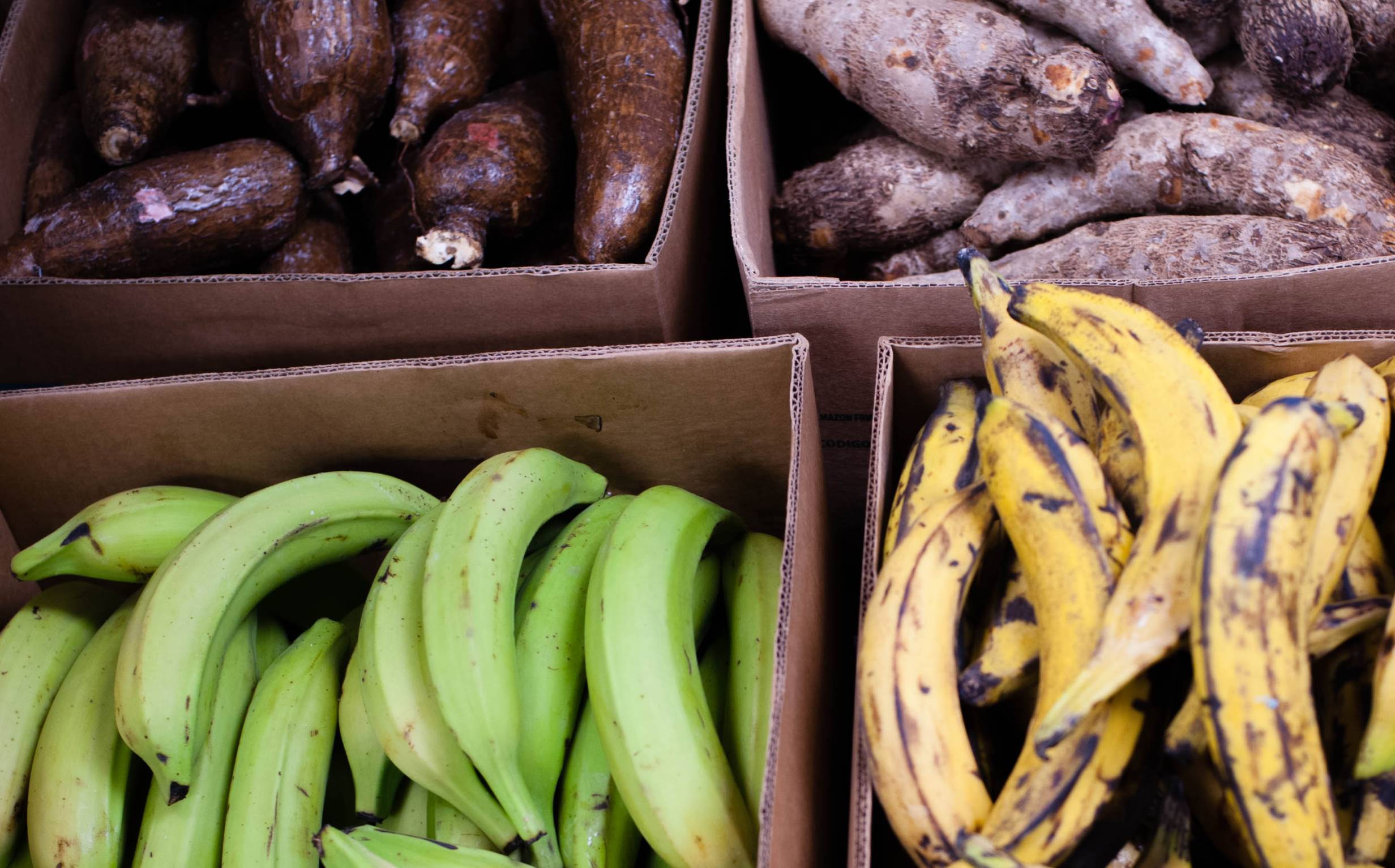
Since the study and since Mbaki and Mabiza opened up Best of Africa, there are a few other African immigrant-owned businesses that have become established in Champaign-Urbana. Mbaki and Mabiza hope to be a big part of that expansion in Urbana, with the plans of creating a special events venue for people to host parties and to showcase the talent of local African immigrant artists. Currently Mabiza is also working with the Urbana Park District to feature more African musicians for neighborhood and community events.
Mbaki also said that she plans to expand her current catering business not only to service the proposed venue but to also create a new, sit-down restaurant featuring Congolese and other African cuisines.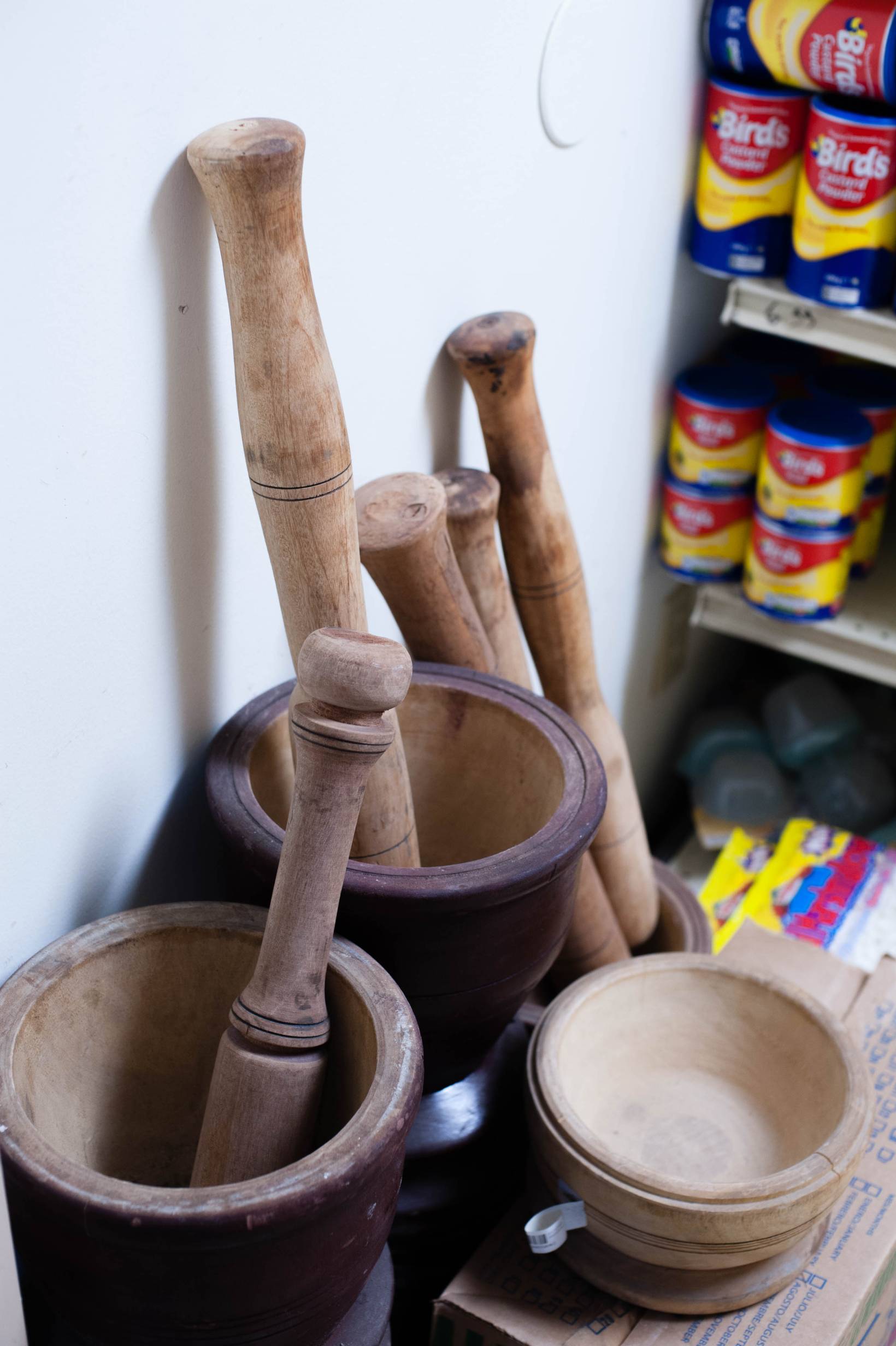
“The restaurant is going to be called Mama Africa,” said Mbaki. “We are so excited to get it started and hope we will have the support from the Champaign-Urbana community to make it happen.”
Mbaki and Mabiza are currently taking donations from the community at the front counter of the Best of Africa Food Store to help jump start the establishment of the special events venue and Mama Africa Restaurant. The owners added that all community members are invited to shop at Best of Africa Food Store and to learn more about African products and culture, too.
“We would be so happy to show you around,” Mbaki said smiling. “Everyone is welcome to come visit us.”
The Best of Africa Food Store
208 W Griggs St
Urbana
M-Sa 8 a.m. to 8 p.m
Su 10:30 a.m. to 8 p.m.
Photos by Megan Flowers








